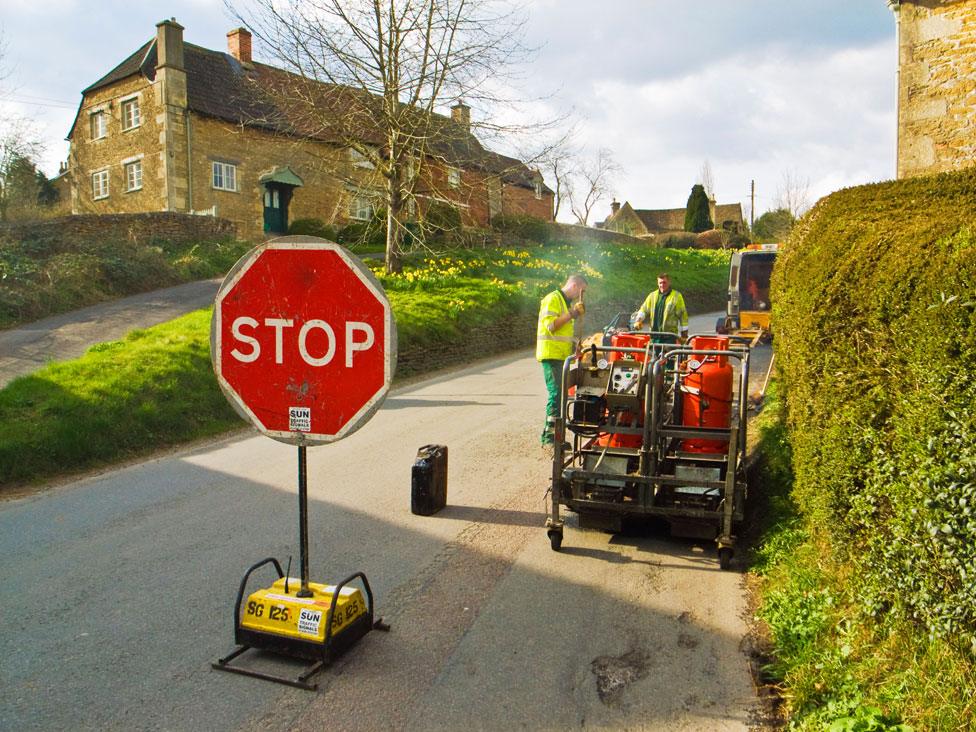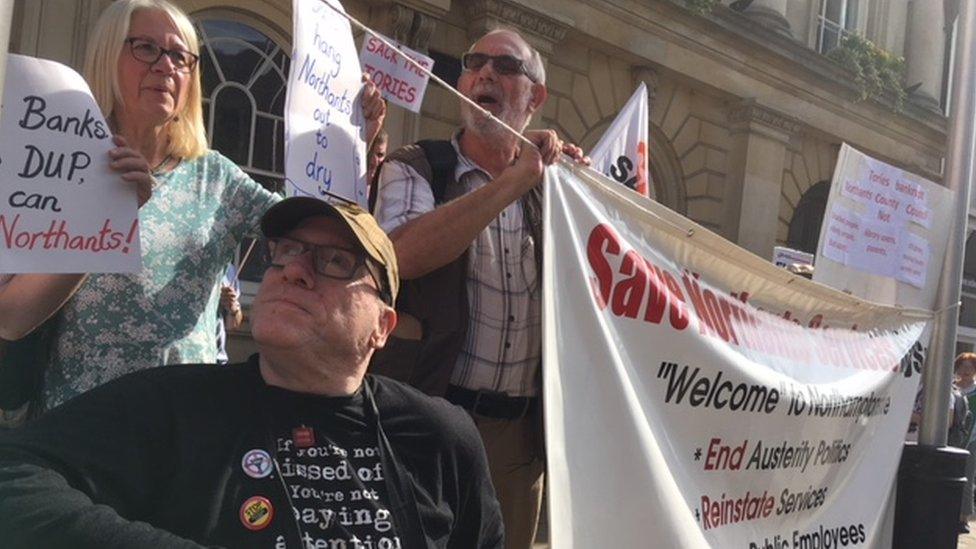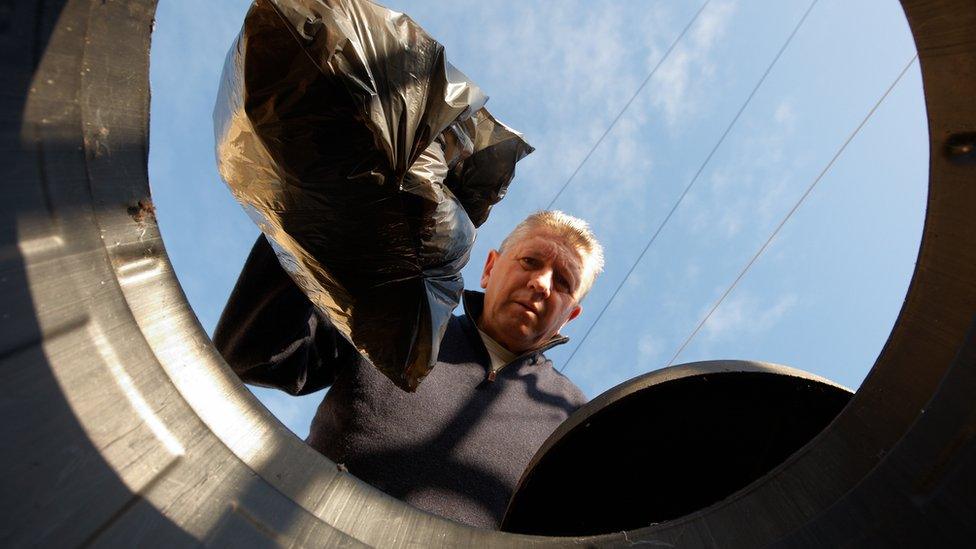'£1bn in unpalatable county council cuts' ahead in England
- Published
- comments

Council bosses in England say the "worst is yet to come" in cuts to services, as the government further reduces local authority funding.
The County Council Network predicts "unpalatable cutbacks" next year as the councils identify at least £1bn savings to plug a £1.5bn shortfall by 2020.
It also warns the risk of some councils stripping their services back to a minimum 'core offer' is growing.
The government said councils will get a real term funding increase in 2018-19.
It insists its approach strikes the right balance between relieving pressure on local government and ensuring taxpayers do not face excessive bills.
'Cost-pressures'
But town hall bosses say local government funding from central government, through the revenue support grant, will have been cut by around 60% by 2020.
Cllr Paul Carter, chairman of the County Council Network and leader of Kent County Council said: "Counties will work hard to deliver the savings required, but the scope for making deliverable savings has dramatically reduced, and decisions for next year will be truly unpalatable if we are to fulfil our statutory duties.
"Without additional resource, the worst is yet to come."
Some councils have reached a financial crunch point, such as Northampton - where £70m of savings are required by March.
Somerset has had to rubber-stamp in-year funding cuts to keep to their 2018-19 budgets, while East Sussex is drawing up a plan outlining what its core offer will be.
The County Council Network, which represents 36 larger authorities, surveyed its members about their budgets and what they planned to cut next year.

All 36 responded said they faced significant cost pressures, including a growth in demand in some areas - particularly children's and adult social care, inflation and rising costs outside of their control.
The survey revealed council bosses had already ear-marked £1bn worth of services as potential sources of savings.
Some £685m of those are to balance the books going forward.
Twenty five councils who responded to a separate survey, set out what they were planning to cut, moderately or severely:
58% said highways and transport (including road improvements, streetlights, pothole filling)
47% said libraries
45% said early years and youth clubs.
44% ear-marked public health services like smoking cessation, sexual health, substance misuse
36% said children's services.
Councils say they are expecting to have to switch funds from non-statutory services - the ones they are not obliged to provide by law - to ensure statutory services are provided.
Councillor Nick Rushton, CCN finance spokesman and leader of Leicestershire County Council, said authorities were in a "serious and extremely challenging financial position" and further cuts and rising costs would make a "bad situation even worse".
"County councils across the country have no choice but to find a further £1bn of savings next year," he said.
"There is not enough money today to run vital services. Next year there is even less from the drop in government funding."
He added that councils were again at the point where council tax rises alone would not protect services.
Councillor Martin Hill, leader of Lincolnshire County Council, said his authority had to save £25m a year since 2010.
He said it would soon come to a point where the council would have to consider whether it can operate safely with regard to its responsibilities to vulnerable children and adults.
A Ministry of Housing, Communities & Local Government spokesman said local authorities were responsible for their own funding decisions, "but over the next two years, we are providing councils with £90.7bn to help them meet the needs of their residents".
They said local councils would have the power to retain the growth in income from business rates and develop a system for the future.
- Published2 August 2018

- Published7 September 2018
